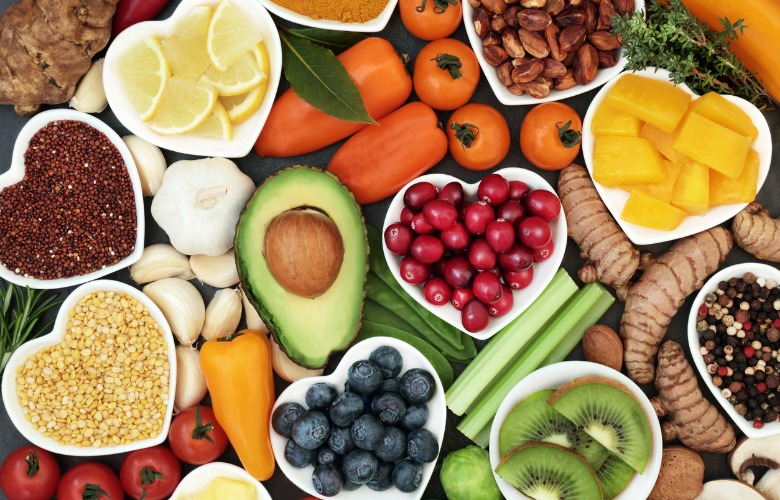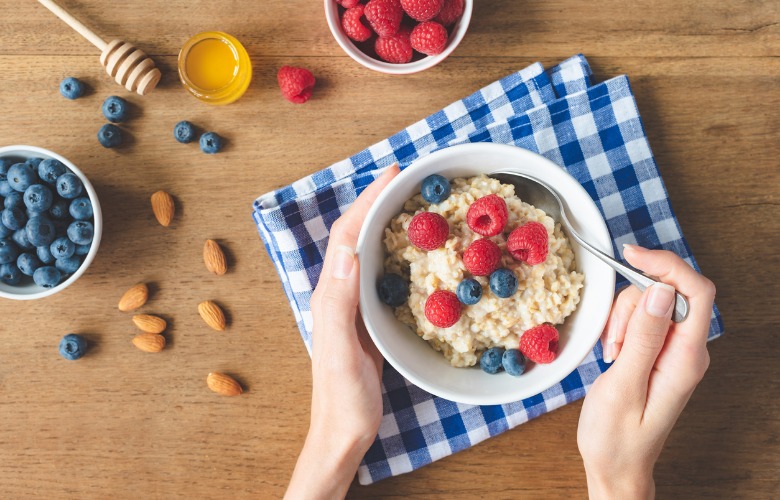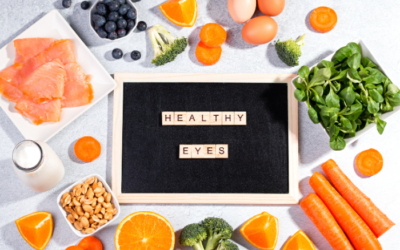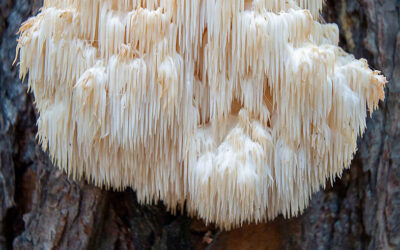How Important is Fiber in Your Diet?
What is dietary fiber?
Dietary fiber, also called roughage or bulk, is the part of plant-derived food that your digestive enzymes cannot completely break down while you digest. Fiber passes through your digestive system mostly intact, through your stomach, intestines, and colon.
Found in plants, dietary fiber can be obtained from eating them raw or cooked. They can also be found in fiber supplements.
Dietary fiber was initially termed in the 1950s and was first defined in the 1970s. From 1980s into the new millennium, scientific understanding of dietary fiber evolved. Scientifically, it wasn’t until 2001 that the AACC definition was provided – this would include the origin, chemistry and physiology of dietary fiber. It took another eight years to be fully finalized and agreed upon.
Soluble vs. Insoluble
You may have heard of soluble and insoluble fibers, what is the difference between the two?
Soluble fiber
Some sources of soluble fiber include oats, barley, beans, lentils, and certain fruits and vegetables.
- Dissolves in water
- Fermented in the colon into gases
- Turns into short-chain fatty acids produced by gut bacteria in the colon
- Can result in a feeling of fullness that is extended because it delays gastric emptying
- Regulates blood glucose levels
- Lowers serum cholesterol levels
- Increases viscosity of gut content
- Increases colonic fermentation
Insoluble fiber
Sources of insoluble fiber include dark, leafy vegetables, whole-wheat foods, nuts, seeds, legumes and many fruits and vegetables.
- Does not dissolve in fiber
- Shortens bowel transit time
- Improves laxation due to bulking capacity
- Support the growth of intestinal microflora
Fiber food groups
Traditionally, food has been divided into groups – whether they provide soluble or insoluble fiber. In addition, there are several types:
- Cellulose, hemicellulose, and psyllium are bulking fibers, these absorb water and support bowel regularity.
- Psyllium and resistant starch are viscous fibers, these thicken the fecal mass.
- Inulin and resistant starch are fermentable fibers, these feed the bacteria and microbiota of the large intestine. They are also metabolized and yield short-chain fatty acids.

Health Benefits of Fiber
Gut health
You may have heard a lot about probiotics, but fiber is key to supporting a healthy gut microbiome. Your gut is full of hundreds of bacteria, including fungi, archaea and viruses. Everyday they fight for resources in your gut. While probiotics (live beneficial bacteria) can be very helpful, research shows that it may be better to feed the beneficial bacteria already in our guts. These good bacteria have a favorite meal and it is fiber. In fact, if microbes are starved of fiber, they can begin to feed on the mucus lining in the gut that helps protect it, leading to disease and inflammation.
According to a biologist at Stanford University, Justin Sonnenburg, “Diet is one of the most powerful tools we have for changing the microbiota. Dietary fiber and diversity of the microbiota complement each other for better health outcomes.” This is especially true of fermented fibers.
While our body cannot digest most of fiber, our microbes can extract the extra energy, nutrients, and vitamins that fiber contains for us. Particularly, the short-chain fatty acids which have been associated with improved immune function and can help to reduce inflammation.
Gastrointestinal health
First, fiber keeps your bowels running smoothly, prevents constipation and keeps you regular. High fiber diets may also prevent colon cancer according to research. Fiber can also help with gastrointestinal disorders including Crohn’s disease, diverticular disease, irritable bowel syndrome, cholelithiasis, duodenal ulcers, hemorrhoids and hiatal hernias.
Supports normal cholesterol levels
Studies show that a high fiber diet can have a beneficial effect on cholesterol levels, increasing plasma HDL-C and decreasing TC/HDL-C ratio. In other words, it reduces the cholesterol in your bloodstream and help lower “bad: cholesterol or LDL – low-density lipoprotein. Research also shows it may help prevent other cardiovascular disease, including blood pressure and inflammation.
Supports normal blood sugar levels
Soluble fiber intake can help those with diabetes, as it has been shown to slow the absorption of sugar while improving blood sugar levels. Insoluble fiber has also been found to help reduce the risk of type 2 diabetes as a high fiber diet can have an impact on insulin resistance.
Weight management
Eating fiber rich foods slows digestion, which can help you feel full and satiated for longer. They also take longer to eat and tend to have less calories per volume. This can all contribute to weight management and weight loss.
Decrease inflammation
Linked to diseases such as arthritis, some cancers and Alzheimer’s, chronic inflammation can be problematic. Studies show that a diet high in fiber can reduce inflammation and preserve brain function. The reason it helps with brain function is because the microglia (an immune cell in your brain) can become chronically inflamed and may cause memory issues and cognitive problems as you age. This process is again connected to your gut as we discussed earlier.
Reduce your cancer risk
Studies show that regular consumption of foods containing high fiber can have a protective affect against certain cancers, including colon cancer, breast cancer, ovarian cancer, endometrial cancer, and gastrointestinal cancer.
Anti-aging and longevity benefits
Since a high fiber diet reaps so many health benefits, it isn’t a stretch that fiber has the added benefit of anti-aging properties and longevity benefits. Studies show that those who ate “an average of 29 grams of fiber per day” aged better, they were “free of cancer, heart disease and diabetes” and their cognitive and physical function was good.
How much fiber?
The current recommendations according to the Institute of Medicine suggest the following recommendations for adults:
- Men, age 50 and younger: 38 grams
- Men, age 51 and older: 30 grams
- Women, age 50 or younger: 25 grams
- Women, age 51 or older: 21 grams

Fiber-rich Foods
Generally, whole foods are the highest source of fiber and refined or processed foods are lower in fiber. Canned foods, white breads and pastas, cereal that is not whole grain and pulp-free juices are lacking the fiber that their whole counterparts have.
The good news is, it is easy to increase your intake of fiber. Some of the following foods can help you to ensure you are reaching your fiber goals each day.
Whole-grain products – breads and grains
Bulgur, kamut, barley, quinoa, whole wheat pasta and bread, buckwheat, wild rice, brown rice, millet, oatmeal, buckwheat, couscous, cornmeal, amaranth, farro, freekeh, and bran are all excellent sources of fiber. Remember to check cereal and bread levels when choosing fiber rich foods.
Fruits
Most fruit contains fiber, however not all are equal. Raspberries are very fiber rich, containing 8 grams per cup. Apples, bananas, oranges, strawberries, passion fruit, avocados, guavas, blackberries, pomegranate, persimmon, kiwifruit, pears, blueberries, tangerines, cherries, apricots, starfruit, mangos, grapefruit, lychees, papaya, nectarines, peaches, pineapple, plums, cantaloupe, grapes and watermelon all are great sources of fiber.
Vegetables
The rule is, in general, the darker color the vegetable, the higher the fiber. Among the highest in fiber are artichokes – approx. 10 grams per artichoke. Acorn squash, green peas, collard greens, butternut squash, parsnips, broccoli, carrots, spinach, Brussels sprouts, green beans, okra, sweet potatoes, swiss chard, baked potato, asparagus, turnips, rutabagas, sweet corn, fennel, kale, eggplant, cabbage, tomatoes, cauliflower, zucchini, celery, leeks, and lettuce are all fiber rich vegetables.
Beans and legumes
Beans are not only high in fiber, but high in protein as well. They are easy to incorporate in meals and an excellent meat replacement – especially if you are vegetarian or vegan. All beans and legumes are all high in fiber, including navy beans, small white beans, adzuki beans, split peas, lentils, pinto beans, mung beans, black beans, chickpeas (garbanzo beans), great northern beans, kidney beans, large white beans, black-eyed peas, edamame (boiled soybeans), natto, fava beans, and tofu.
Nuts and seeds
Seeds and nuts make an easy snack and it is a really simple way to incorporate more fiber into your diet. They are also rich in good fats and low in carbohydrates. However, they are high in calories, so keep in mind they are better as a small snack. Chia and flax seeds also contain omega-3 fatty acids, which is good for your heart health as well. Some of the nuts and seeds high in fiber include, chia seeds, flax seeds, pumpkin seeds, dried coconut, chestnuts, sesame seeds, sunflower seeds, almonds, pine nuts, and pistachios.
Herbs and spices
While usually only consumed in small amounts, adding these herbs and spices to your meals regularly can help increase your intake of fiber. High fiber herbs and spices include, cinnamon, savory, coriander, sage, fennel seeds, caraway seed. paprika, cloves, cardamom, cayenne pepper, bay leaf, pepper, fenugreek seed, allspice, dill seed, turmeric, mace, and poppy seed.
Fiber Supplement
If you find it difficult to consume enough of these foods to meet your daily fiber recommendation, a fiber supplement can be a good choice. Fiber supplements are available in capsule or powder form.

A few more tips on including more fiber in your diet
- Eat meals with lots of vegetables
- Snack on popcorn, it is a whole grain, low calorie and three cups of air-popped popcorn contains 4 grams of fiber per ounce!
- Keep whole fruit on hand for a quick and easy, fiber rich snack. Apples and pears are great on the go too.
- Center dessert around fiber rich berries, they are naturally sweet, low carb, and high in fiber content.
Add berries to your morning oatmeal or cereal – double your fiber rich foods! - Incorporate beans and legumes into your chili, stews, and soups.
- Add chia or flax seeds to your smoothies
- Bored of cereal? Try adding cereal to yogurt, with nuts, seeds, and fruit as well. Not only will it add lots of fiber to your day, but also a healthy helping of protein and probiotics.
- Pack bags of veggies like carrots, celery, and broccoli to snack on in the afternoon – they are low in calories and have lots of fiber.
- Make your own fiber rich granola
- Make your own green juice and don’t forget to include the pulp
- Don’t forget to read ingredients on cereals and breads to make sure they really do contain whole grains. Sometimes they are labeled with multi-grain, seven-grain, cracked wheat and stone-ground wheat instead.
- Change it up, try a new grain you usually don’t eat, like amaranth, wheat berries or millet. You may be surprised that you like it.
- No time to make oatmeal in the morning? Try making overnight oats.

Jemile earned a degree in Food Studies and Writing and has worked for almost 23 years in the medical and health industries. She has been a digital marketing consultant for Acupuncture Atlanta since 2011 as the social media manager and content manager. Writing has been a childhood dream for Jemile and writing daily for clients in the health, wellness, food, and art industries have been phenomenal. Jemile is originally from Brooklyn, NY, and lives in the Hudson Valley, NY. She lives with her husband, two daughters, her dog, and two fish. You can contact Jemile via Linkedin, her mom blog, or her website, lunaroseconsulting.com



